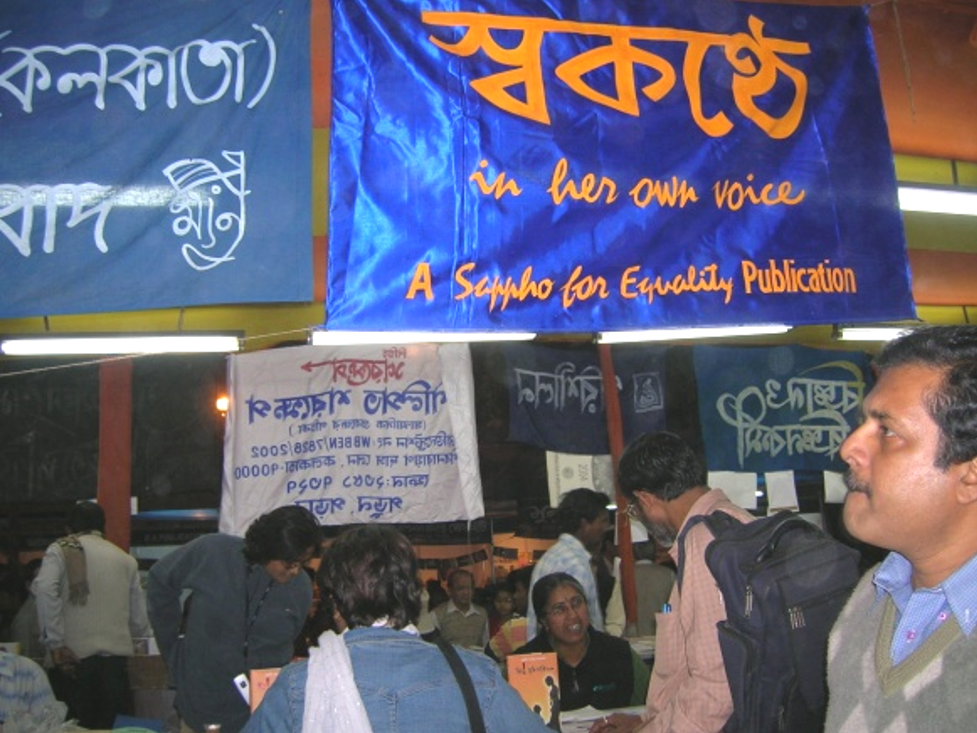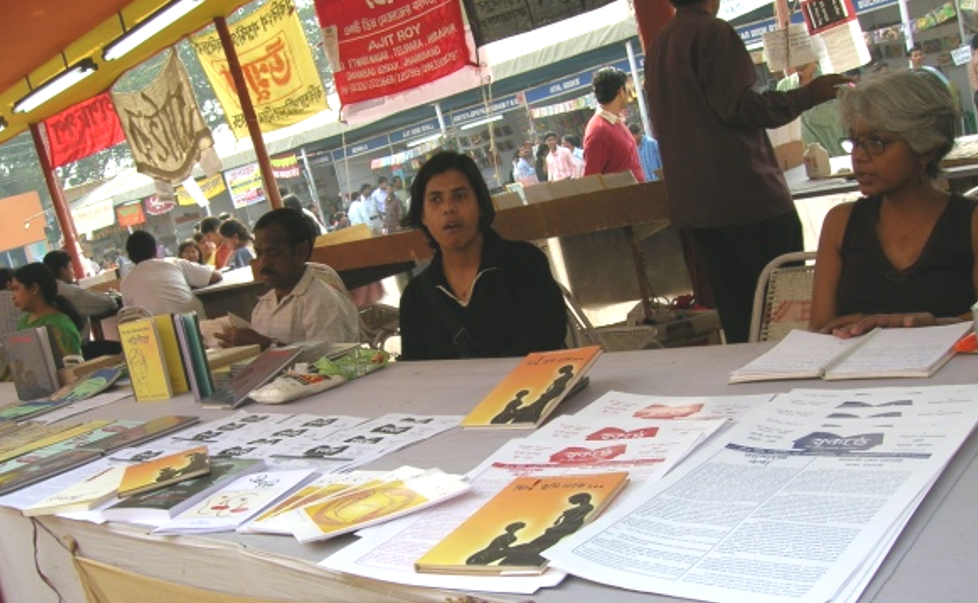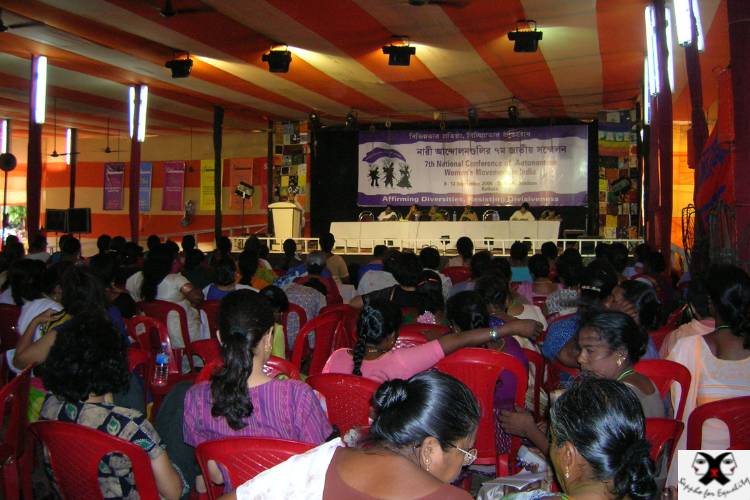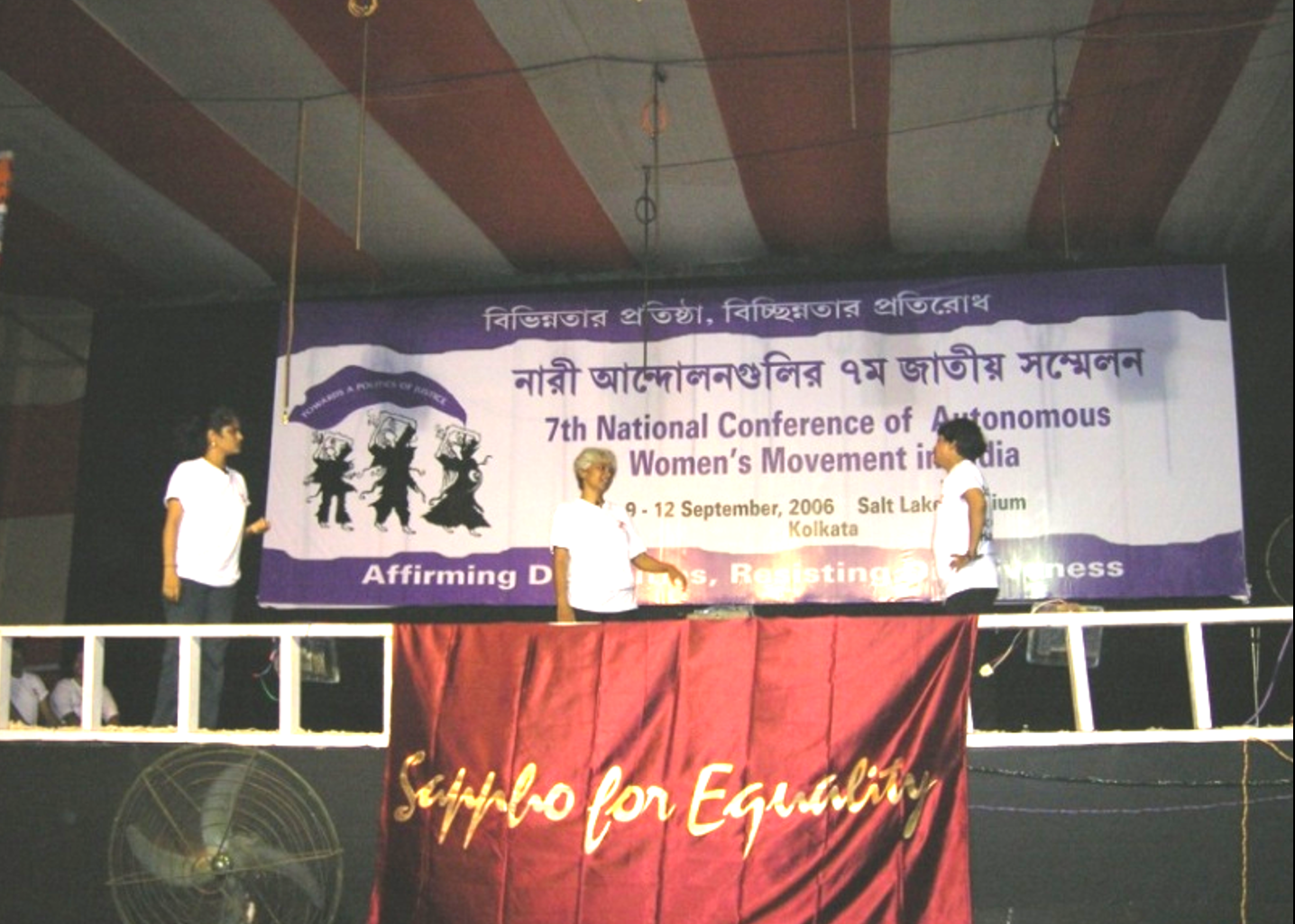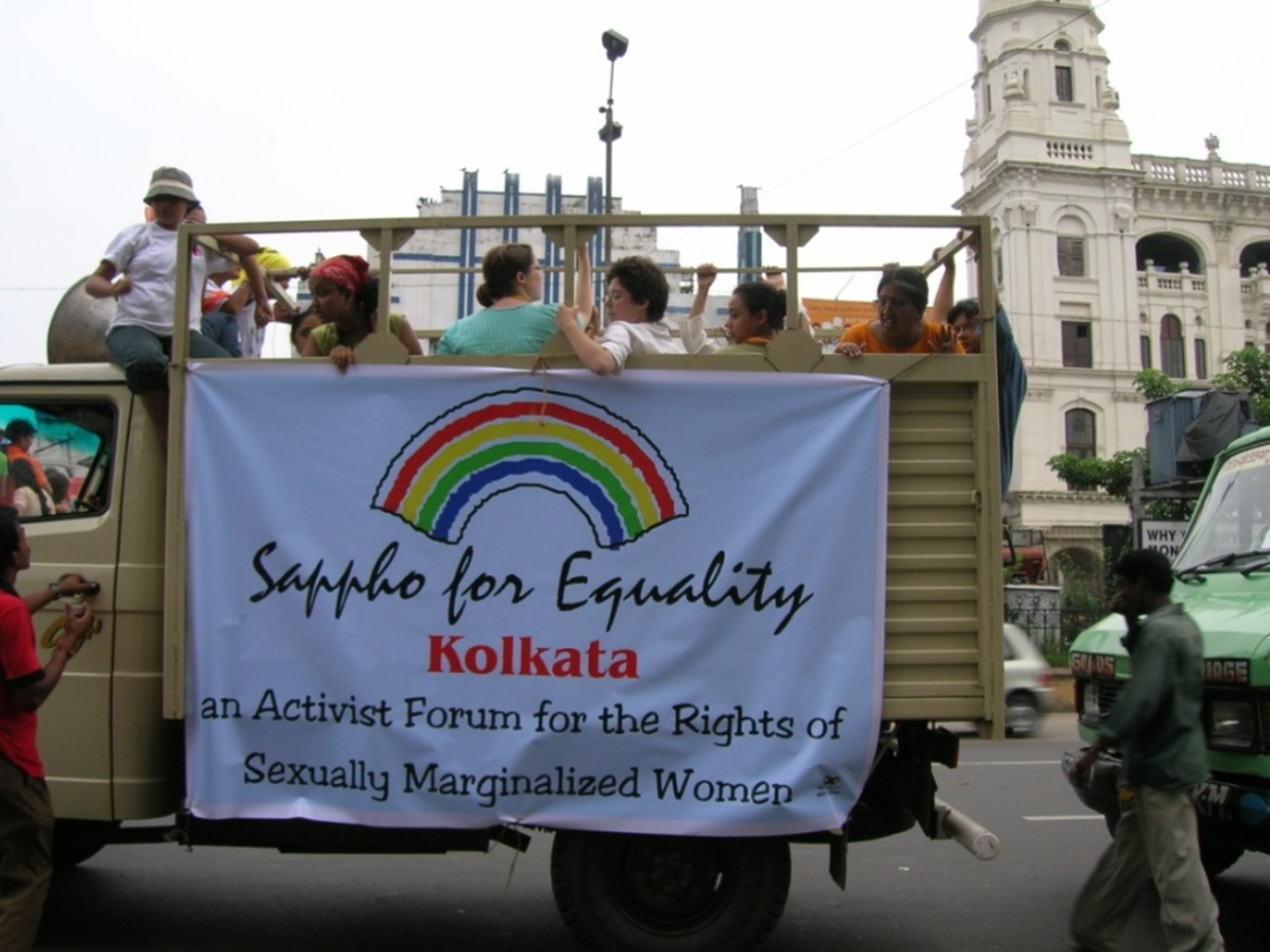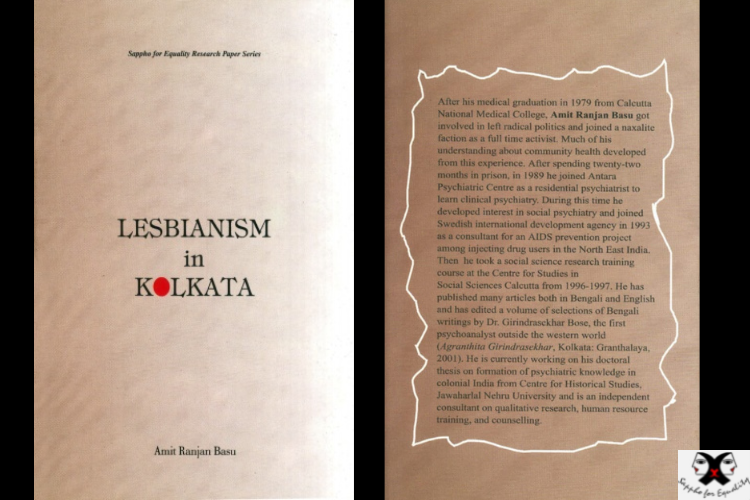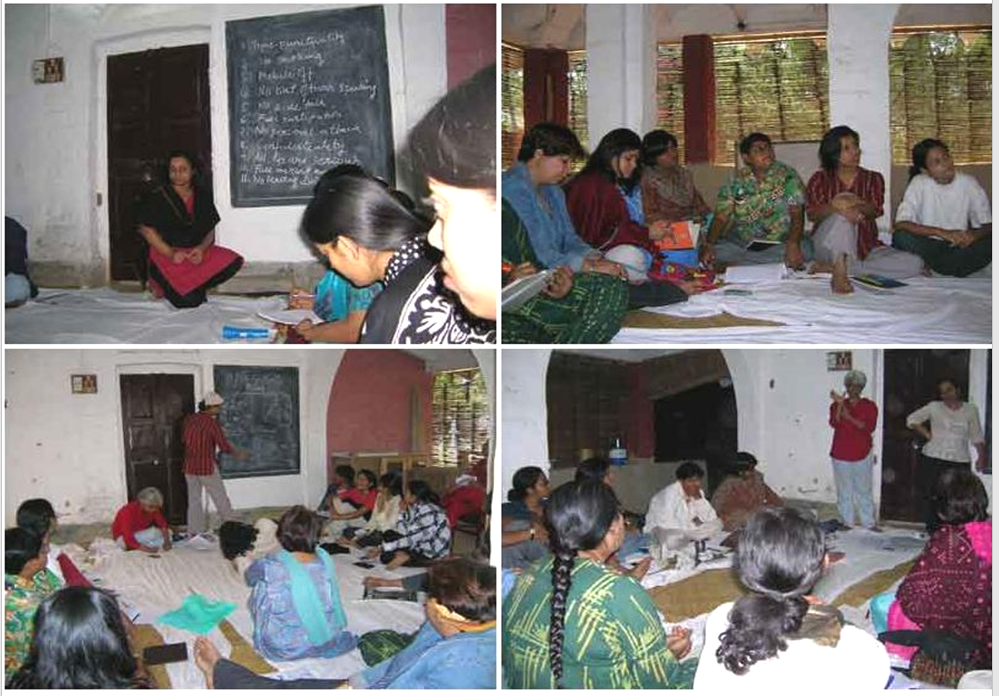2006 Landmarks
1. FIRST TABLE IN THE LITTLE MAGAZINE PAVILION, KOLKATA INTERNATIONAL BOOK FAIR
‘Swakanthey’ (in her own voice) as the representative of SFE, was allocated a table in the prestigious Little Magazine Enclosure of the 31st Calcutta Book Fair, on 26th of January 2006. At that point, SFE had been selling ‘Swakanthey’ in the Book Fair grounds for the last two years. This was the first occasion for the Calcutta book fair to invite and include a LBT rights organization formally.
The response to this unprecedented invitation was overwhelmingly positive. The stall garnered support and engagement from people visiting the fair regardless of their social or political location. Not only did it serve as a selling desk for two major SFE publications, ‘Swakanthey’ and ‘Chhih! tumi naki . . .’( Shame! Are you a . . . ), but also as a point of information exchange. This was a pivotal moment in LGBT cultural history, not only specifically in Kolkata - but also nationally.
Since 2006, SFE members have participated in every consequent year that the book fair was organised. Thousands of copies of ‘Swakanthey’ are sold every year, along with multiple other SFE publications. People have not ceased to be curious about SFE and the work it foregrounds, and volunteers are kept occupied throughout the period of time that our table is set up at the little magazine pavilion.
SFE has also piqued the interest of the media through its participation in the book fair. Local satellite channels like Tara Bangla, E-TV Bangla, DD-Bangla, Star-Ananda have taken bytes of SFE members within the fair ground and made stories on different angles of LGBT issues.
2. FIRST SELF EMPOWERMENT RESIDENTIAL WORKSHOP
For the first time Sappho for Equality organized a three-day residential self empowerment workshop for its members on Gender and Sexuality issues and conflicts at Babli village, Bolpur, West Bengal which is almost 180 Km away from Kolkata from 10th Feb to 12th Feb, 2006. Altogether there were 22 participants and 2 facilitators cum resource persons. It started with a warm up exercise of trust building, which was followed by a brain storming session on locating the problematic issues regarding gender and sexuality. Many of the participants were hesitant about talking freely regarding issues of sexuality per se. The facilitators step by step opened up issues that were less threatening to more detailed exercises about one's own sexual expressions and experiences.
3. LESBIANISM IN KOLKATA
In June 2006, Sappho for Equality published their first concise research report on the formation of Sappho, the support group for lesbian and bisexual women, and transmasculine persons in Kolkata. This report was an amalgamation of recounted narratives of Sappho’s founding members, and the making of connections between the personal and the political, while also illustrating the socio-political context in which the organization evolved.
A digital copy of this publication is available here: Lesbianism in Kolkata. Contact SFE at the Chetana Resource Center for access to a print of this report.
4. THE 7TH NATIONAL CONFERENCE ON AUTONOMOUS WOMEN'S MOVEMENT
The 7th National Conference of Autonomous Women’s Movements took place in September 2006. The theme for that year was ‘Affirming Diversities, Resisting Divisiveness’. Sappho for Equality was a part of the organizing committee and shouldered the responsibility of organizing accommodation for approximately 2000 outstation participants from across the country. Additionally, SFE also co-organized a daylong workshop on diverse sexual and gender identities, and took part in cultural programs and rallies through the city streets.
The National Conference of Autonomous Women's Movements was first organized in 1990, but the subject of sexuality was merely touched upon till 2006. Hosted in Kolkata, the seventh conference was when for the first time there was a daylong session on sexuality where, through sharing lived experiences from different regions of the country, it was seen how lesbian visibility was present all over India.
The session was broken into parts constituted by an open discussion on various topics surrounding gender, violence against non conformity, definitions of sex and intersexuality and a contextualization of the same in our cultural history. This space facilitated by Sappho also became a platform for underrepresented voices such as those of the eunuch and transgender communities/ identities. The resultant conclusion was that there was a general consensus on the need for larger feminist movements to be more intersectional. Apart from this session, Sappho also staged a queer rendition of The Ramayana. It aimed to provide resistance against heteronormativity, patriarchy, classism and casteism.
Through this conference SFE and LBT rights issues had gained tremendous traction in both regional and national women’s rights movements.
